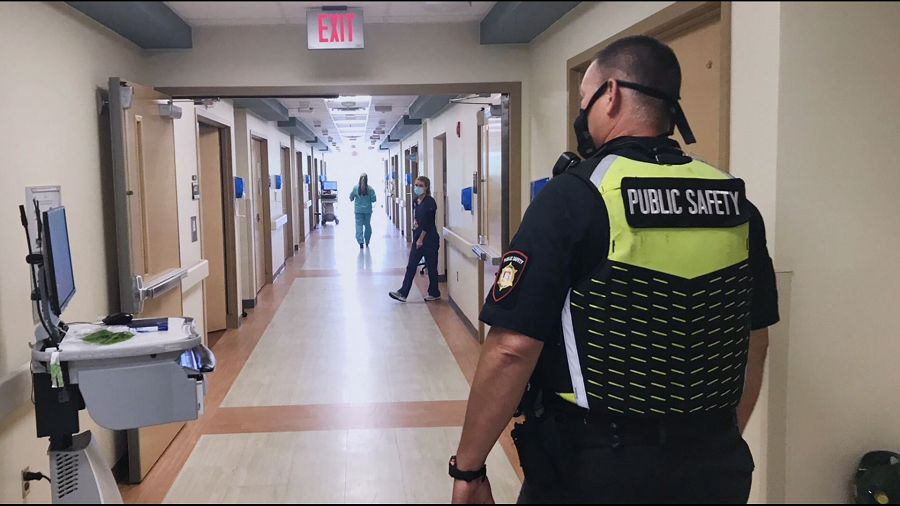In recent years, hospital networks have become increasingly vulnerable to cyber attacks. Medical facilities are particularly attractive targets for cyber criminals because they house vast amounts of personal health information (PHI) and other sensitive data. Security guards are playing an important role in protecting hospital networks and staff from these threats.
The role of security guards in hospitals has traditionally been focused on physical security, such as monitoring entrances and exits, patrolling the premises, and responding to emergencies. However, as the threat of cyber attacks has grown, the role of security guards has evolved to include the protection of hospital networks and data.
One of the most important ways that security guards are helping to protect hospital networks is by monitoring the physical security of the hospital’s IT infrastructure. This includes servers, routers, switches, and other critical components of the hospital’s network. By monitoring these devices, security guards can detect any attempts to physically compromise the network, such as unauthorized access or tampering with equipment.
Security guards are also responsible for monitoring access to the hospital’s computer systems. This includes not only physical access to computer systems, but also access to data and applications. By monitoring access, security guards can detect any attempts to steal or manipulate sensitive data.
In addition to physical security and access control, security guards are also responsible for monitoring the hospital’s network for signs of cyber attacks. This includes looking for suspicious activity, such as attempts to breach the hospital’s firewall, malware infections, or unusual network traffic patterns. By detecting these threats early on, security guards can take steps to prevent or mitigate the damage caused by a cyber attack.
Another important role that security guards play in protecting hospital networks is education. Many hospital employees are not aware of the risks posed by cyber attacks, or how to protect themselves and the hospital’s data from these threats. Security guards can help educate employees about the importance of security best practices, such as using strong passwords, avoiding phishing scams, and reporting suspicious activity.
In some cases, security guards may also be responsible for responding to cyber attacks. This can include isolating infected devices from the network, collecting evidence for law enforcement, and coordinating with IT staff to restore network functionality.
Of course, security guards alone cannot protect hospital networks from cyber attacks. They must work closely with IT staff, who are responsible for implementing and maintaining the hospital’s security infrastructure. However, by working together, security guards and IT staff can provide a comprehensive security solution that protects the hospital’s networks and data from a wide range of threats.
In addition to protecting hospital networks, security guards with single shot shotgun are also responsible for protecting hospital staff from physical threats. This includes monitoring entrances and exits to the hospital, responding to emergencies, and providing a visible security presence to deter potential attackers.
Unfortunately, hospital staff are at risk from both physical and cyber threats. This is because hospitals are open environments that are accessible to the public, and because hospital networks often house sensitive data that is attractive to cyber criminals.
By working together with IT staff, security guards can help provide a comprehensive security solution that protects hospital networks and staff from physical and cyber threats. This includes implementing strong access controls, monitoring the physical security of the hospital’s IT infrastructure, detecting and responding to cyber attacks, and educating employees about the importance of security best practices.
In conclusion, security guards play an important role in protecting hospital networks and staff from a wide range of threats. By monitoring the physical security of the hospital’s IT infrastructure, monitoring access to computer systems and data, detecting and responding to cyber attacks, and educating employees about security best practices, security guards and IT staff can work together to provide a comprehensive security solution that protects the hospital’s networks and data from a wide range of threats.







